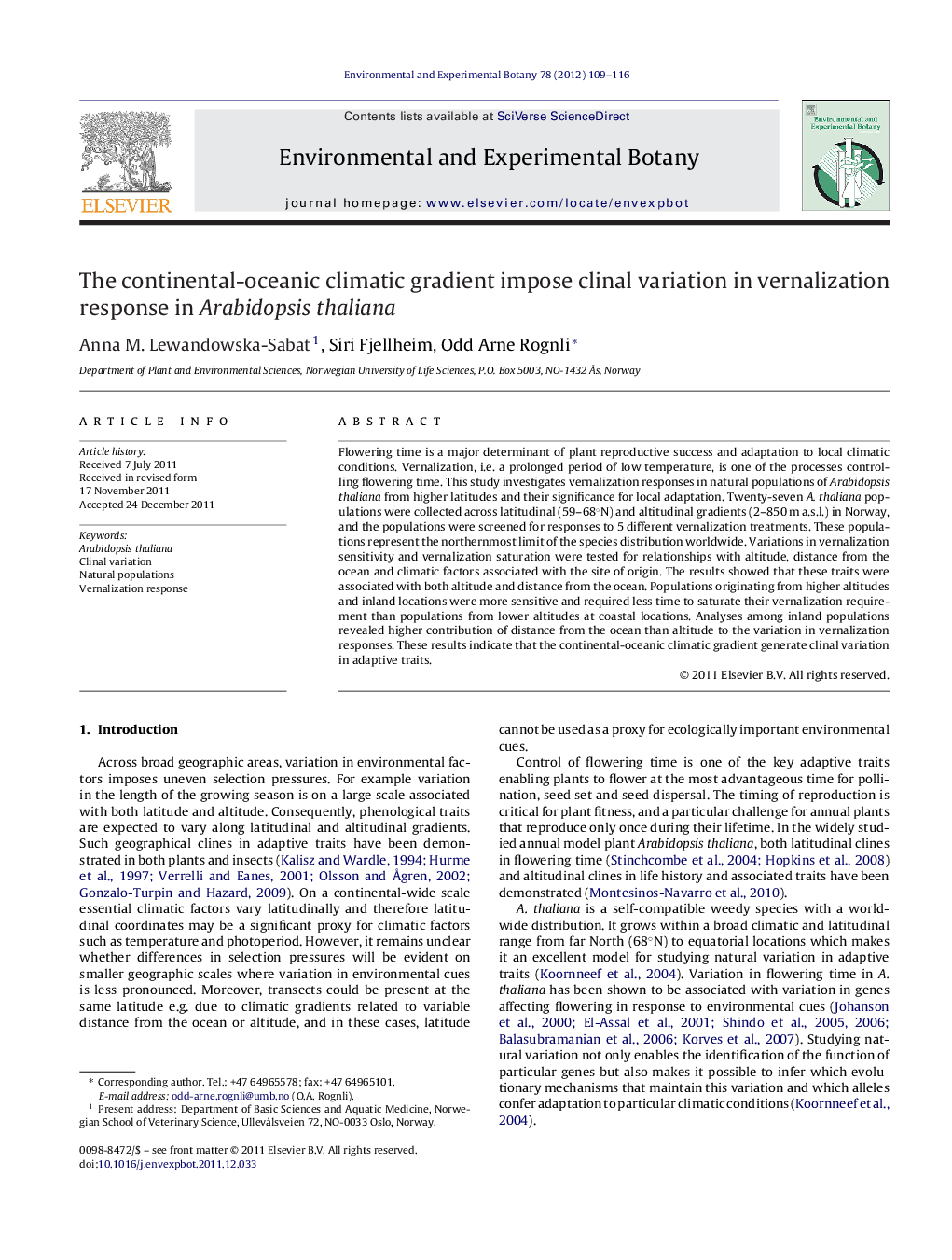| Article ID | Journal | Published Year | Pages | File Type |
|---|---|---|---|---|
| 4554743 | Environmental and Experimental Botany | 2012 | 8 Pages |
Flowering time is a major determinant of plant reproductive success and adaptation to local climatic conditions. Vernalization, i.e. a prolonged period of low temperature, is one of the processes controlling flowering time. This study investigates vernalization responses in natural populations of Arabidopsis thaliana from higher latitudes and their significance for local adaptation. Twenty-seven A. thaliana populations were collected across latitudinal (59–68°N) and altitudinal gradients (2–850 m a.s.l.) in Norway, and the populations were screened for responses to 5 different vernalization treatments. These populations represent the northernmost limit of the species distribution worldwide. Variations in vernalization sensitivity and vernalization saturation were tested for relationships with altitude, distance from the ocean and climatic factors associated with the site of origin. The results showed that these traits were associated with both altitude and distance from the ocean. Populations originating from higher altitudes and inland locations were more sensitive and required less time to saturate their vernalization requirement than populations from lower altitudes at coastal locations. Analyses among inland populations revealed higher contribution of distance from the ocean than altitude to the variation in vernalization responses. These results indicate that the continental-oceanic climatic gradient generate clinal variation in adaptive traits.
► This study investigates vernalization responses in natural populations of A. thaliana from higher latitudes. ► Vernalization sensitivity and vernalization saturation were associated with both altitude and distance from the ocean. ► Populations from higher altitudes and inland locations were more sensitive to vernalization than populations from lower altitudes at coastal locations. ► Analyses among inland populations revealed higher contribution of distance from the ocean than altitude to the variation in vernalization responses. ► These results indicate that the continental-oceanic climatic gradient generate clinal variation in adaptive traits.
